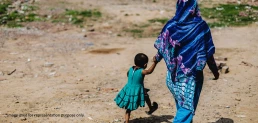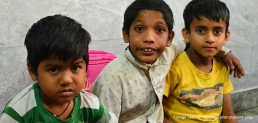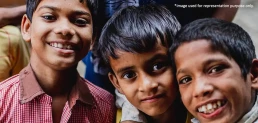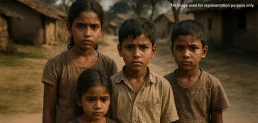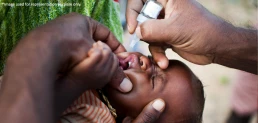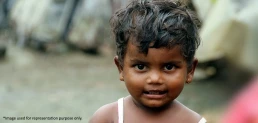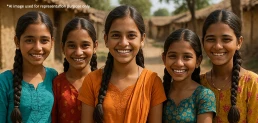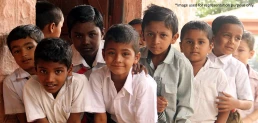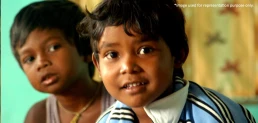Nutrition forms the foundation of every child’s health, learning, and future. For marginalized children, especially those facing poverty, restricted access to services, or discrimination, nutrition is not just about food. It is a shield against illness, a gateway to education, and a lifeline to opportunity. This guide explores the role of nutrition and the importance of childhood nutrition, outlining how proper care can transform lives and demonstrating how targeted programs supported by donors can ensure every child thrives.
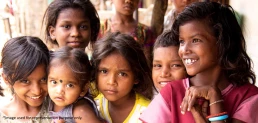

Why Nutrition in Early Childhood is Critical
Early childhood (0–6 years) represents a unique window when nutrition directly shapes:
- Brain development: Proper nutrients support cognition, concentration, and emotional regulation
- Physical growth: Deficiencies stunt growth and increase susceptibility to illness
- Immunity: A strong immune system reduces childhood mortality and frequent infections
- School readiness: Healthy children attend school more often and perform better academically
The importance of childhood nutrition cannot be overstated; malnutrition during early years can have lifelong impacts on health, learning, and earning potential.
Also Read: Educational Problems Faced by Girls in Remote Areas of India
Understanding Children’s Nutritional Needs
How Needs Vary by Age and Development Stage
| Age Group | Energy (Kcal/day) | Protein (g/day) | Key Micronutrients |
| 0-6 months | Exclusive breastfeeding | Iron, Vitamins A, D | |
| 6-24 months | 500 Kcal | 12 g | Iron, Calcium, Vit A & D |
| 2-6 years | 500 Kcal + Hot meals + milk + eggs | 12-15 g | Same + Folate |
| 6-14 years | 450-700 Kcal in midday meal | 12-20 g | Iron, Folic Acid, Vit A |
| Adolescents | Increased need for iron, calcium, and protein | Iron (girls), Calcium, Vitamin D |
These details highlight how children’s nutritional needs change over time and why a structured approach is essential.
Balanced Diets vs. Calorie-Rich, Nutrient-Poor Foods
Balanced Diets:
- Whole grains, pulses, vegetables, fruits, dairy, eggs
- Provide macro- and micronutrients, supporting growth and immunity
Calorie-Rich, Nutrient-Poor Foods:
- Sugary snacks, processed foods
- Lead to “hidden hunger,” enough energy but poor nutrient intake
- Risk of obesity, poor learning, and health issues
The children’s healthy diet must balance both, focusing on nutrient density rather than just calories.
Also Read: Anemia in Children
The Importance of a Healthy Diet for Marginalized Children
Marginalized children, especially in rural areas or urban slums, face stark nutritional challenges:
- Poor access to diverse, nutritious food
- Higher disease burden undermining nutrient absorption
- Limited parental education on nutrition
A children’s healthy diet helps:
- Protect against stunting, wasting, and anemia
- Enhance school performance and attendance
Investing in nutrition early helps break the cycle of poverty and opens doors to life opportunities.
Addressing the Nutrition Crisis
Multiple converging efforts are needed to tackle malnutrition among marginalized children. These include government initiatives, community outreach, and civil society action.
Role of Mid-Day Meals, Anganwadis, and Government Programs
PM POSHAN (Mid‑Day Meal Program)
- Covers 120 million school children with daily meals
- Primary (Class 1–5): 450 kcal + 12 g protein per meal
- Upper Primary (6–8): 700 kcal + 20 g protein
- Includes fortified foods, vitamins, eggs, fruits, and local cuisines
Integrated Child Development Services (ICDS)/Anganwadi
- Offers supplementary nutrition, health check-ups, immunisation, and preschool education
- For children 6 months–6 years: 300 kcal + 8–10 g protein via hot meals and take-home rations (THR)
- For pregnant/lactating mothers: 600 kcal + 20 g protein from THR
- Under Saksham Anganwadi & Poshan 2.0, upgrades include involving AYUSH for wellness and Poshan Tracker technology for beneficiary tracking
- Other Programs
- Sabla: Micronutrient support for adolescent girls 11–18
- Arogya Lakshmi (Telangana): eggs, milk, full meals for maternal-child nutrition
- UP Mukhyamantri Suposhan Abhiyan: early morning nutrition snacks for preschool children
Community Awareness and Parental Education
Health and nutrition education at the community level supports better outcomes:
- Workshops by Anganwadi workers teach meal diversity and nutrition for kids
- Kitchen garden promotion, growing leafy greens locally, boosts nutrient intake
- Clean water, sanitation, and hygiene education prevent disease and loss of nutrients
NGO and Volunteer-Led Nutrition Programs
Supplementary programs support government efforts:
- Camps to track growth and monitor anemia
- Training local women as nutrition champions
- Supplementary feeding, vitamins, and deworming drives
These programs help reinforce public services and ensure the role of nutrition in children’s health.
CRY’s Role in Nourishing Underprivileged Children
CRY works alongside government initiatives, mobilizing communities and donors to improve nutrition for marginalized children.
- Strengthening Mid-Day Meal & ICDS Delivery
- Works with schools and Anganwadi centers to:
- Improve the quality of food available for mid-day meals, and monitor nutritional standards
- Implement kitchen and school nutrition gardens
- Supports the integration of fruits, eggs, and fortified staples
Community Engagement & Education
- Trains caregivers on the importance of childhood nutrition
- Supports kitchen gardens in homes and schools for fresh produce
- Conducts awareness campaigns on balanced diets, hygiene, and nutrition needs
Early Screening and Health Camps
- Nutrition and growth monitoring camps identify at-risk children
- Follow-up through referrals, supplementation, and treatment
Nutritional Kits & Support
- Provides fortified meals, micronutrient supplements, and deworming tablets
- Supports vulnerable children, girl children, and migrant families
Long-Term Monitoring & Advocacy
- Tracks growth, school attendance, and health outcomes
- Works towards stronger implementation and budget support via local authorities.
Donations enable CRY to bridge gaps, scale resource-limited programs, and bring essential nutrition to marginalized children nationwide.
Why Donor Support Matters
Your contribution can:
- Fund meals, supplements, and health camps
- Train community workers and mothers on nutrition
- Support kitchen gardens and nutrition awareness campaigns
- Help monitor and strengthen public programs
Every dollar helps safeguard a child’s growth, learning, and future, breaking poverty cycles and creating resilient communities.
Conclusion
The role of nutrition in a child’s life cannot be overstated. From infancy through adolescence, nutrition determines physical growth, cognitive ability, immunity, and social engagement. For marginalized children, proper nutrition equals protection against disease, educational setbacks, and lifelong marginalization.
India’s government programs, the PM POSHAN, ICDS/Anganwadi, and others provide a sound foundation. But to ensure every child benefits, support and partnership are essential.
Through community empowerment, monitoring, and supplementing public efforts, CRY ensures that the vital promise of nutrition in early childhood becomes a reality for those who need it most.
Nourished children grow into strong learners, confident individuals, and productive citizens. With your help, any gap in access to nutritious meals can be addressed. Support the growth of dreams, resilience, and hope because every child deserves a strong start.
FAQs
How does poor nutrition affect a child’s learning and school performance?
Poor nutrition impairs brain development, concentration, and memory, directly impacting learning. Children suffering from undernutrition may struggle with low energy levels, frequent illness, and delayed cognitive milestones, resulting in poor school attendance and academic performance. Undernourished children are more likely to repeat grades or drop out altogether. A well-balanced diet is vital for sustaining attention, participating in class, and building the physical and mental resilience needed for effective learning.
What are the essential nutrients required for kids?
Children need a range of essential nutrients for proper growth and development. These include proteins for tissue building, carbohydrates for energy, healthy fats for brain development, and vitamins like A, D, E, and C. Minerals such as calcium (for bones), iron (for blood), iodine (for mental development), and zinc (for immunity) are equally crucial. A varied, balanced diet ensures children meet their nutritional requirements and build a strong foundation for lifelong health.
Why is early childhood the most critical time for proper nutrition?
The first 1,000 days of life, from conception to age two, are a period of rapid brain and body development. Nutrition during this time influences cognitive ability, immunity, height, and even future disease risk. Deficiencies during early childhood can cause irreversible damage, including stunted growth and impaired learning. Ensuring good nutrition early helps children reach developmental milestones, succeed in school, and avoid long-term health complications. It is the most effective stage for lifelong impact.
What government or NGO programs support children’s nutrition in India?
Key government programs include the Integrated Child Development Services (ICDS), offering supplementary nutrition to children under six and pregnant/lactating women through Anganwadi centers. The PM POSHAN program (Mid-Day Meal) provides free cooked meals in government schools to improve child nutrition and school attendance. Additional programs like Poshan Abhiyaan and Sabla target adolescent girls. NGOs like CRY complement these efforts by supporting community-based nutrition awareness, monitoring, and meal supplementation for vulnerable children.
Recommended for you











